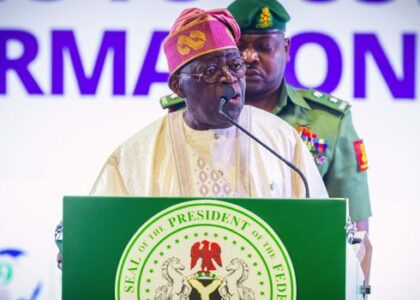In 2021, the jurisdiction of the ECOWAS Community Court of Justice (ECCJ) was seised in the matter of Alex Nain Saab Moran v Cabo Verde ECW/CCJ/JUD/07/2021 (25) 84 to intervene in the detention, pending extradition of Alex Nain Saab Moran in Cabo Verde. This was not just an ordinary case, given the diplomatic ingredient of the matter and the potential of the escalation into a diplomatic row. Alex Nain Saab Moran is a close ally of the Venezuelan President, Nicolas Maduro.
In the case before the ECOWAS Court, Alex Nain Saab Moran was arrested in Cabo Verde when the plane on which the he was travelling made a stopover in the Republic of Cabo Verde to refuel. The arrest was carried out by the Cabo Verdean Authority based on a red notice allegedly issued by INTERPOL, at the request of the United States of America for purposes of his extradition, based on the United Nations Convention against Transitional Organized Crime, for money laundry crimes allegedly committed in the United States (US). At the beginning of his detention, neither the red alert nor the arrest warrant issued by a US District Court was shown to Saab. He was brought before a Cabo Verdean national court for extradition proceedings, against which he made several applications for reliefs before the national courts of Cabo Verde on the basis of immunity before lodging an application at the ECCJ seeking several reliefs against Cabo Verde, principally on grounds of diplomatic immunity. It was in evidence that he was on a special mission to Iran on 12th June, 2020, pursuant to his duties as a Special Envoy for the Government of Venezuela with the mandate to negotiate with Organisations in Iran to secure humanitarian aid for the people of Venezuela, pursuant to an agreement between the government of Venezuela and Iran to that effect. In fact, while the case was ongoing, the Applicant informed the Court that he had been appointed an alternate ambassador to the African Union (AU). The Court considered his claims and rendered its decision accordingly.
In the application, Alex Nain Saab Moran invited the Court to consider and determine: (a) whether the Applicant (Saab) was subjected to arbitrary detention in Cabo Verde; (b) whether the Applicant is the victim of political persecution by the United States, and consequently by Cabo Verde; (c) whether the Applicant’s procedural rights were violated during the detention and extradition procedure in Cabo Verde; and (d) whether there is a real probability that the Applicant’s human rights will be violated if he is extradited to the USA.
The Court dismissed his claim on all other grounds for lack of proof, except for the ground of arbitrary detention in Cabo Verde, where he was successful. It was on this ground that the Court ordered that the extradition proceedings be discontinued and that the Applicant be immediately released. The Court also awarded him a compensation of Two Hundred Thousand USD for the moral damages suffered as a result of illegal detention.
Cabo Verde ignored the decision of the ECOWAS Court, preferring to the ruling of its municipal court that Saab did not have diplomatic status and extradited him to the United States in October 2021, where he was held in federal jail in Miami. Federal prosecutors in Miami charged Saab with siphoning around $350 million out of Venezuela through the United States as part of a bribery scheme linked to Venezuela’s state-controlled exchange rate. Saab was also accused of bribing Venezuelan government officials to secure payment in U.S. dollars at a favorable rate, and laundering money through a scheme involving building low-income housing in Venezuela. He pleaded not guilty, and his attorneys battled in vain to get his case dismissed by claiming diplomatic immunity. Alex Nain Saab Morán had earlier been charged in Florida in 2019 for money laundering.
On 21 December 2023, following a prisoner swap agreement between the United States and Venezuela, Saab was released from prison and allowed to return home after serving over three and a half years in custody.
The evidence relied upon by a Cabo Verde court hold that Saab had no immunity is not very clear, given that the Government of Venezuela continued to assert diplomatic immunity on Saab’s behalf. In fact, his prosecution in the United States was reported to have sparked an outcry from Venezuela’s government and activists in the U.S., with his defence team embarking on a concerted legal effort to get the case against him dismissed in federal court.
There are many questions that beg for answers in the manner Cabo Verde handled this matter and the circumstances in which it extradited Saab to the US notwithstanding the absence of an extradition treaty between the two countries. And also notwithstanding that both the ECOWAS Court and the United Nations human Rights Commission (UNHRC) asked Cape Verde to suspend the extradition of Saab to the US at the time.
It is also curious that US prosecutors appear unable to provide any concrete evidence of the charges against him since he got into their custody in 2021.
Whatever deal the US had with Cabo Verde that made it mandatory for Cabo Verde to do the bidding of the US against all odds must have been too good to reject.
@Centre for Community Law, January, 2024







